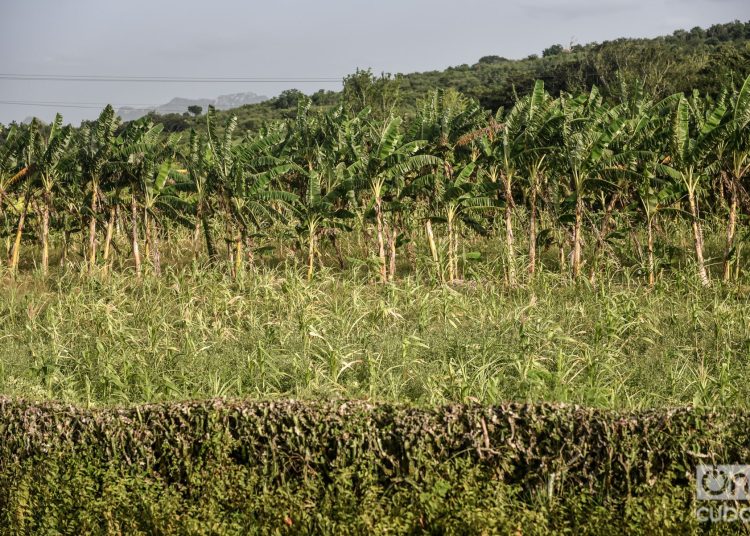The Cuban government currently does not have the necessary resources to reverse the serious crisis in the production of many of the basic foods for the population, and which has an impact on the inflationary spiral that the country is experiencing.
Ydael Pérez Brito, head of the Ministry of Agriculture (MINAG), stated on the Mesa Redonda television program that due to lack of availability of financing, it had only been possible to acquire “40% of the required diesel fuel, 4% of the fertilizers and 20% of animal feed” necessary to guarantee the needed production levels.
The official added that due to the same shortcomings, it has not been possible to cover the demand for other inputs, nor to respond to expansionary plans in the sector.
1/2 Se anuncia que el ministro de agricultura “conversará” hoy sobre “desafíos, insuficiencias y acciones principales de trabajo”. Sería más apropiado que rindiera cuentas de la inutilidad de la actual política agropecuaria y que pudiera proponer algo mejor que las “63 medidas” pic.twitter.com/6mTNZVu62h
— Pedro Monreal (@pmmonreal) October 26, 2023
He also referred to the need to increase the planted areas. Still, he recognized that “this would require greater use of fuel and people dedicated to the activity,” conditions that do not exist at the moment, since currently “only 15% of the population lives in the countryside.”
In addition, Pérez Brito commented that everything cannot be blamed on the complex situation and assumed the “lack of work” in issues such as government attention to producers.
Declining programs
The minister also gave an overview of the current situation in various areas of the sector, and a notable regression can be seen with few options for correction.
Regarding pork production, which in 2017 reached a maximum of 199,700 tons, it was barely able to reach 16,500 tons last year.
He indicated that only 14% of the food for pig farming had been distributed, which has caused the number of producers to decrease between 2018 and 2022 from 96,200 to 35,892, affecting the basis of the development of the pork program.
The minister illustrated a similar situation in the poultry program, which of the eight million laying hens it had at its peak, now only has three million.
“After the pandemic, we could not acquire the vaccines and the replacement program was stopped. This has caused us to be working with a very high percentage of aged hens,” he said.
He added that feed instability causes a decrease in laying efficiency, which is why currently only five eggs per person can be distributed through the basic food basket.
Regarding the situation with other basic foods, the panorama is not very different. Pérez Brito explained that in the case of rice for consumption, the lack of fertilizer decreased production by up to 10% of the 300,000 tons that were produced in the country.
In the same situation, bean production is developing with a decrease of up to 9% of what was harvested in 2016, the year with the highest production. In the case of corn, the decrease currently stands at 30% of the 400,000 tons achieved that year.
Measures and uncertainty
The Cuban minister of agriculture commented that the sector he directs is channeling a group of measures to reverse the current situation.
Among them, he mentioned the decision to increase the area under irrigation dedicated to grains by 35%, increase yield using more productive varieties and hybrids, as well as work with foreign investment, and design of collaborative projects to acquire financing.
Based on this vision the production of coffee would be focused, a product with very little availability in recent months, whose national production only guarantees 9,000 of the 24,000 tons necessary to respond to demand.
The head of the sector announced a program underway to reach a production of 30,000 tons in 2030, based on the use of new clones of the grain with excellent yields.
The shortage and high prices of food are among the major problems faced by the Cuban government, which designed and implemented a package of 63 measures that have not achieved the expected results.
Cuba imports around 80% of the food it consumes, but purchase volumes have been affected by the global situation, marked by the pandemic and war conflicts, which have skyrocketed the prices of food and supplies.










